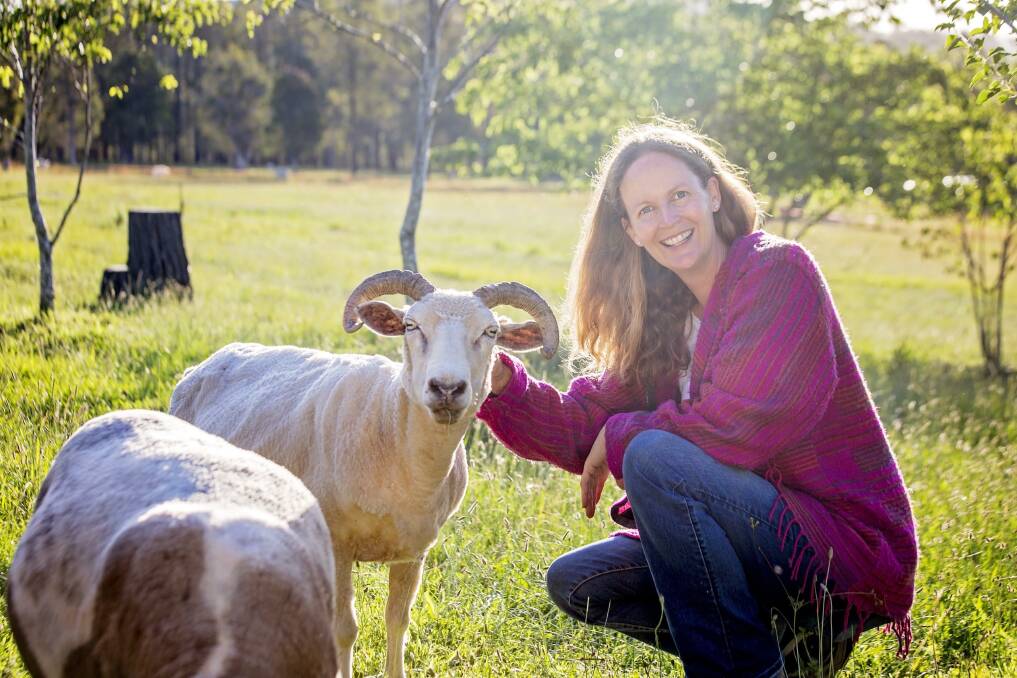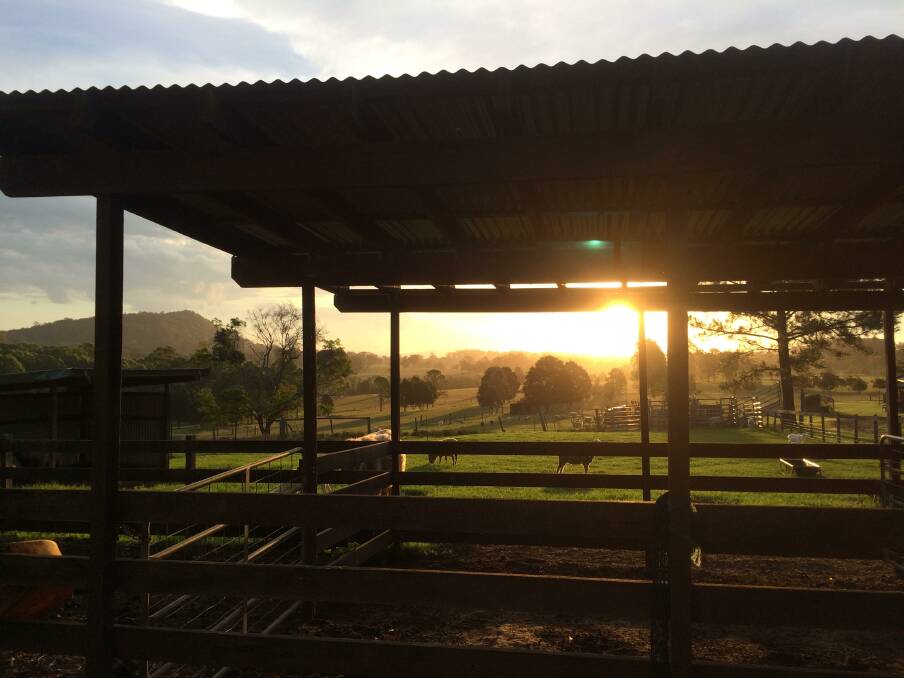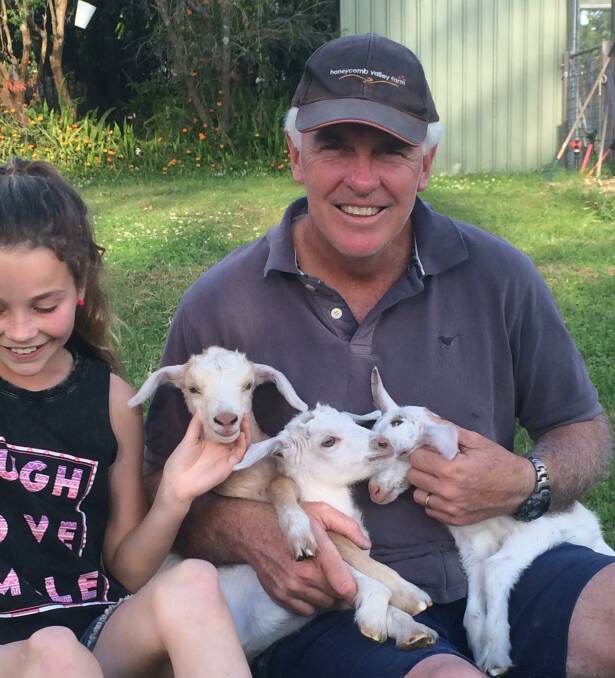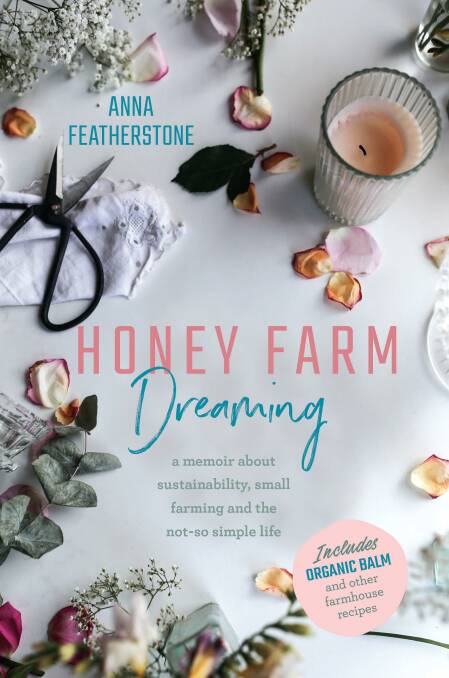
This year Anna Featherstone and her husband Andrew Campbell published two books that reflect on their decade-plus experience as a small farmers.
Subscribe now for unlimited access.
$0/
(min cost $0)
or signup to continue reading
The books were Honey Farm Dreaming, a very personal memoir of anecdotes and observations by Anna, and Small Farm Success Australia, a combination business and lifestyle guide subtitled “How to make a life and a living on the land”.
The couple, with their three young children (ages 1, 3 and 5) in tow, bought a 36-acre property near Nabiac in 2006 (which they called Honeycomb Valley Farm) and proceeded to engross themselves in farm life, including growing organic tumeric, raising sheep and chickens, investing in bees and producing honey and associated products such as lip and skin balms.
READ ALSO:
They also operated a farmstay tourism business and took on WOOFers (World Wide Opportunities on Organic Farms) from all over the world, who traded labor for food and board.
As they contemplate what’s next, we asked them about their experience.
I am curious about both you and Andrew's background before you took on the farm in 2006. Can you provide a background as to your immediate work and location before moving to Nabiac, and more background from your childhood up to adulthood if you like.
Very early on when we first got married, Andrew (he had a degree in animal husbandry but worked his way through Uni in hospitality so never practised) and I managed resorts including Heron Island and Silky Oaks Wilderness Lodge (that gave us a real appreciation for the environment!). After that I worked in PR and marketing for charities like the Variety Club Bash and eventually the internet company Yahoo! Immediately prior to the farm, Andrew ran a boat management business in Sydney and I was working with my Dad doing life story DVD documentaries for people with early dementia. (Haha! - now that’s an interesting path to becoming a farmer!)

Why did you decide to write two books? Did you keep a diary or notes to keep your thoughts clear?
Hmmm, good question! I suppose one was from (and for!) the heart and the other was from and for the head! They’re such totally different books, In one I wanted to share funny stories and my recipes; and in the other all the business learnings to help other people thinking of taking the plunge. I didn’t take notes while we were on the farm but some of the experiences were just so vivid they were written in my head. Small Farm Success though took quite a lot of research as we wanted to tap into the learnings of others and get different perspectives.
When did you leave the farm and exactly why? Did you make money on the sale of the farm?
We sold the farm in June this year and made a profit. We sold for multiple reasons including we’d achieved everything we wanted to including raising the kids fairly free range and we’d learned everything we’d set out to (ranging from making balms and soaps and growing, harvesting and value-adding plants, tending bees etc . . . and that was part of the initial adventure for us . . . but after 10 years we were also tired of doing it on such a big scale and with so many tourists in our backyard).
Costs like insurance kept going up and I also had a lifting injury that was making it harder to farm and do markets. We just realised there are only so many decades in our lives that it was time to change things up and refresh and stop working so hard. It also meant we could move closer to our kids' school for their final high school years.
We’ve never been afraid of change and risk, if we were, we wouldn’t have moved to the farm in the first place, so we just see this as heading off on another adventure.

What lessons have you learned that will factor into what you do next? Particularly, in regards to buying a rural property - what are the most important considerations?
Yes, this is so fun as we’re currently renting while we look for another place and I keep re-reading the chapter in Small Farm Success about choosing the property that will fit your purpose. For people who are farming for income rather than lifestyle, it’s all about water and soil and distance to market. Our purpose for land though has changed since our first farm. That farm needed to financially support a family of five with no outside income coming in, whereas at our next place we will probably not both work it full-time so it doesn’t need to be as busy or productive, then we can look at lifestyle factors like the feeling you get when you take in the view, bushfire hazards, regeneration and small crop opportunities. For others though, things that might be critical include a school bus nearby, good mobile phone reception etc.
Family is clearly important to you - what do you think your kids learned from the Honeycomb Farm experience (I know you did write a book about it 6 years ago, but perhaps you have more reflections, or could refer me to parts of that book)?
The kids learned about cooperation, resilience and so much about the basics of life . . . all those old sayings, ‘you reap what you sow’, ‘the early bird gets the worm’, they lived the experience.They learned about the connection between animals, bugs, plants and humans and the whole cycle of life and death. I think they learned that passion and purpose make for an interesting and fulfilling life!
In Honey Farm Dreaming you specifically mention a trip to the Newcastle City Farmers Markets? How do you rate that market compared to the many markets you sold your goods at? Do you have any thoughts on what that market could do better?
It’s a great market in that it attracts so many people and there is just such a great diversity of producers there. Each market has it’s own vibe as some attract locals, some attract tourists, some attract bargain hunters while some attract people with plenty of money they’re ready to spend on artisan produce. Newie has a good mix of all of those and my neighbouring stall holders were so fun. It was hard yakka though due to the early start and drive, plus carrying all the gear through the sheds…honey in glass is mighty heavy! Every market needs to balance the mix of producers to attract enough customers, it’s a tough gig to get right as market managers are dealing with hundreds of headstrong small business owners with competing needs.

How did you collect the case studies found in Small Farm Success? They seem worthy of a book themselves.
The case studies were just so fun to research! We found them through word of mouth, farmers we’d met at markets and online. Not everyone agreed to be interviewed but most did and it was fascinating to hear how other farmers were approaching their enterprises across the country and to hear their take on what it takes to be a successful small farmer.
Are you still writing about small farm experiences? Have you written any fiction based roughly on the experience?
Not as of today . . . but who knows what the brain might churn out tomorrow. :D
Are the names in Honey Farm Dreaming real names? Where did you learn to write so well?
Some are but many names were changed to protect peoples’ privacy. Oh thanks for the writing comment. My Dad always used to tell us stories when we were kids so I think I got a love of storytelling from him. Then when Andrew and I lived on Heron Island I’d get bored at night as there was no TV or Internet out there at the time so I did a writing course by correspondence. One of the assignments was to write a pitch to a publisher and crazily, that’s how I got my first book deal. I’ve written on and off since then. Honey Farm Dreaming is the first one to make it to paperback, ebook and audiobook.
Learn more at smallfarmsuccess.com.au

